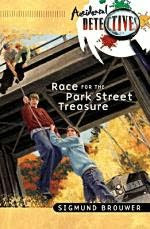Robinson Crusoe, by Daniel Defoe
 I selected this book to read because I'm trying to make up for all the classics I avoided reading during high school. Why is it that I find I'm spending most of my adult reading life trying to catch up on classics that I should have read much earlier? Probably because they weren't presented as "fun reads." Most high schoolers I know do not hear the word "fun" in association with "classic." Say "classic" and immediately you are thinking about Moby Dick. And who REALLY wants to read Moby Dick? I barely made it through the cliff notes. (Yeah, I admit it.) Anyway, I thought Robinson Crusoe would be an entertaining and enlighting read. I found it to be both but it's also not a particular favorite of mine.
I selected this book to read because I'm trying to make up for all the classics I avoided reading during high school. Why is it that I find I'm spending most of my adult reading life trying to catch up on classics that I should have read much earlier? Probably because they weren't presented as "fun reads." Most high schoolers I know do not hear the word "fun" in association with "classic." Say "classic" and immediately you are thinking about Moby Dick. And who REALLY wants to read Moby Dick? I barely made it through the cliff notes. (Yeah, I admit it.) Anyway, I thought Robinson Crusoe would be an entertaining and enlighting read. I found it to be both but it's also not a particular favorite of mine.What I did not realize about RC is that it is touted as being the precurser to all other stories about castaways. Published in 1719, this book comes before Swiss Family Robinson (which I read and reviewed here) and, certainly, before Hollywood's many adaptations (Gilligan's Island and Tom Hank's Castaway come to mind). Because all the good castaway stories have drawn from this (more) original work, and because I read this book after having read and experienced the other stories, Robinson Crusoe was not altogether unfamiliar. In short, I found so much of it familiar in nature that I was frequently bored.
This book serves to make me more aware of the need for classic literature in school curriculum. (I was raised home schooled and my mom was a strong proponent of the use of classics in curriculum. I just didn't like that then. Probably because I had little choice in the matter although I do honestly recall her doing her best to encourage me to think outside my Nancy Drew box.) Instead of Choose Your Own Adventure books it would behove us to market "the old books" as adventure stories entertaining enough to compete with Eragon) et al.
. . . Getting off the soap box . . .
The two things I liked best about this book was the inclusion of Defoe's faith. He freely discusses his Christianity through the development of his main character, RC. Defoe himself was a Presbyterian dissenter which makes certain theological arguments that RC holds in and through his relationship with his man Friday to be most interesting.
The second thing I liked about this book is that, contrary to the obnxious and nauseating all-knowing father in the Swiss Family Robinson, Robinson Crusoe confesses his lack of knowledge about the flora and fauna surrounding him. His experience on his island is more trial and error than knowledge and bizarre fact. That makes this story infinitely more believeable than the Swiss family's. It is easier to identify with an imperfect character than a perfect one.
It is interesting to note that Defoe himself was a poor man who spent the majority of his life in debt and running from creditors. However, he gives his character Crusoe relief in the monatary department and it is easy to think that Crusoe's own feelings of relief in God's provision for his life were feelings that Defoe believed he would also have in such circumstances. The contrast between his real life situation and his "hope in a better tomorrow" in the form of Crusoe is intriguing to say the least.
In summary - this was a great book that I'm glad to have read. I only wish I had read it long ago. It's worthy of time and attention and I hope you get a chance to read it. Yes, it is on the longer side. However, the chapters are short and the story easy to follow. Try it! I think you'll like it.

